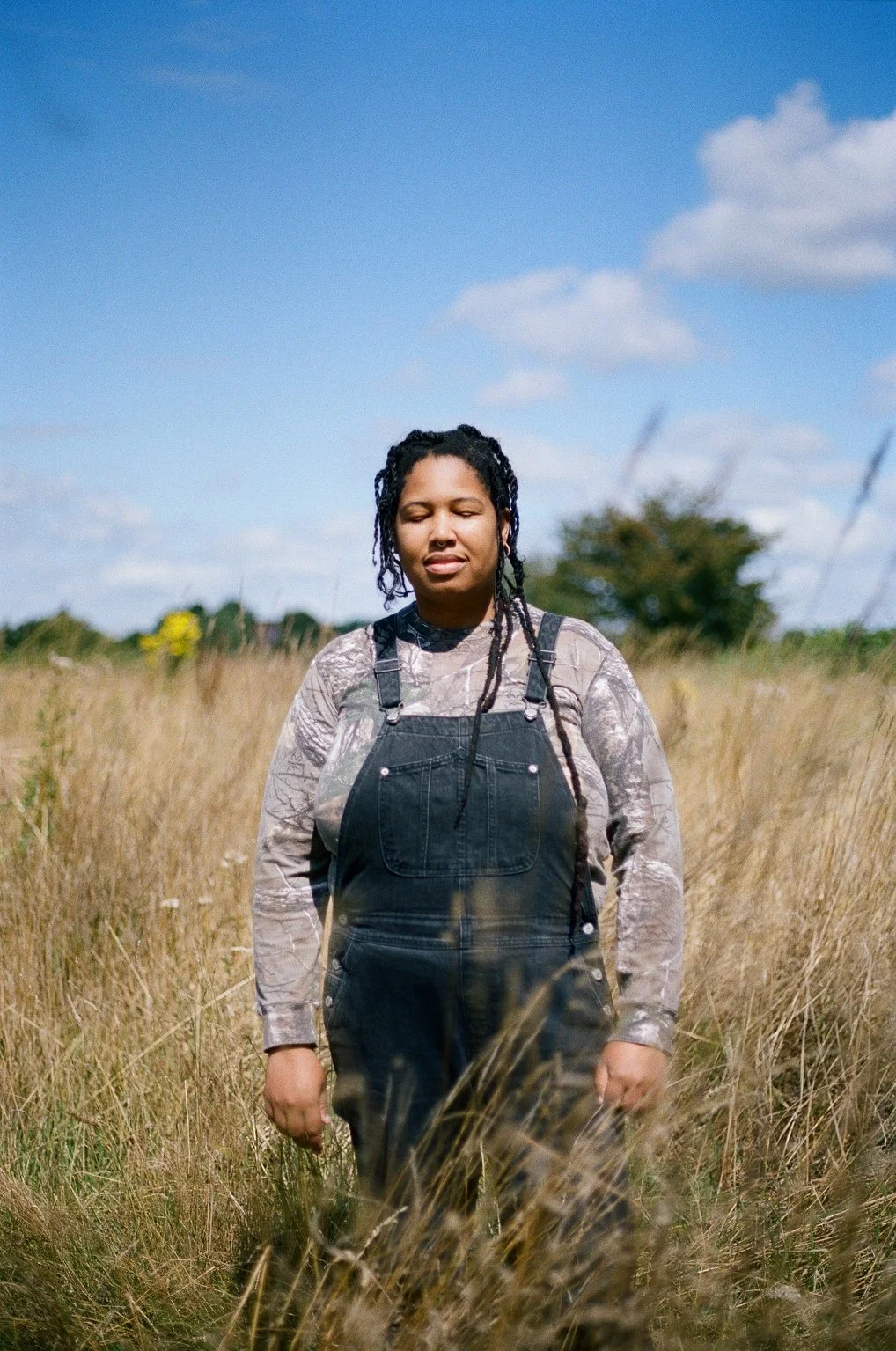5 Questions with Divde and Dissolve
5 Questions with Divde and Dissolve
Takiaya Reed is a rare force in contemporary music, one whose presence is felt as much as it is heard. Though she calls Melbourne, Australia home, her creative reach extends far beyond, resonating with listeners around the world. As the mind behind Divide and Dissolve, Reed crafts soundscapes that are both deeply personal and universally stirring. Her music is a journey through identity, resistance, and reclamation, built on a foundation of doom-laden guitar riffs, haunting saxophone melodies, and thunderous percussion. It’s music that doesn’t just fill a room; it shakes it, offering catharsis and a rallying cry all at once.
At the core of Reed’s artistry is a fierce commitment to decolonisation and Indigenous sovereignty. She creates instrumental music as a refuge, a place to escape the violence woven into colonial language and rhetoric. By stepping away from words, Reed invites listeners to feel, not just to understand. Her compositions speak directly to the soul, evoking emotions that are as colossal as the issues she confronts.
Now, with her new album Insatiable (out April 18 via Bella Union), Reed is opening a new chapter. For the first time, she brings her own voice into the mix, a bold, psychological addition that underscores her fearless approach to creation. She’s not interested in perfection. Instead, she embraces vulnerability and spontaneity, letting her music flow naturally, raw and unfiltered. The result is a body of work that feels alive, urgent, and profoundly human.
Can you share with us what sparks your creative process?
Divide and Dissolve: Reading books sparks it, also just getting lots of rest and having space in my life to just breathe. That's when everything starts feeling good to me because I start getting in the mood and feeling inspired with those conditions. I just read Naked Portrait by Rose Boy. It's really good.
“Music allows me to reclaim space and create boundaries on my terms.”
How do you balance the power of your music with elegance and classical influences, too?
Divide and Dissolve: For me, I think the balance is achieved naturally. I enjoy making music, and I also don't feel bound by genre limitations. So I just enjoy playing what feels good, and I enjoy challenging myself, too. So I think these challenges come with understanding the music technically, but then being able to pull it back or also make it more complicated. And that's something that I enjoy playing with, that balance of being minimal and then making things more personal and more intimate in my music.
How do you know when to step away from a track? What tells you you’ve done enough? What does that feeling feel like?
Divide and Dissolve: I know a track is finished when I feel completely relaxed. I’m not a perfectionist; I love making things that sound beautifully strange, but I also know when it’s time to let go. Honestly, I tend to walk away from a piece pretty quickly. Sometimes, I wish I’d linger a bit longer, but that’s just how I am. If it feels good, it’s done. I appreciate when others push me to go further, but my instinct is to trust that first sense of completion.
Letting go is something I genuinely enjoy. There’s a vulnerability in surrendering to the process, in not obsessing over every detail. I’ve spent hours chasing something that was already there from the start. For me, music should feel as relaxed as I want to be. That’s the space I try to create for myself and anyone listening.
What role do you believe nonverbal communication plays in reaching your listeners, and how do you craft narratives through sound alone?
Divide and Dissolve: It's everything, so important. Non-verbal communication is key to success. I make mostly instrumental music, and the music evokes gigantic emotions, and it simply must do that without words. I feel really grateful and I feel really excited to be able to access that realm and it's a realm that I feel most comfortable in because words, the English language, this colonial rhetoric that has provoked so much violence, it's so wonderful to be able to escape from it and I would like to distance myself from it. In my music I am able to create that distance from this weapon of the colonial project, and English has been used to create dispossession and loss of life and culture and connection and that's something that I feel passion about being able to create some kind of boundaries and distance and use that as a choice. And it doesn't feel like a rule. It's more of an inflection and a part of my process.
Are there any kind of new techniques or instruments that you want to explore or that you explored with your latest record?
Divide and Dissolve: I explored my own voice on my new record. That instrument feels so psychological for me. I'm uncertain and I'm unclear about what it all means, but I don't want to overthink it. I'm just having a good time on the record but that's the newest instrument on the new record, and I always appreciate playing the saxophone and my guitar and I love all the other things that I put on there as well. I would really love to explore it more myself so I can learn more about how I feel.
Follow Divde and Dissolve here.


